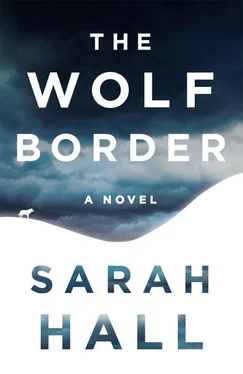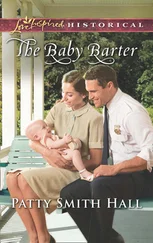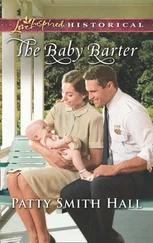Actually, there are, she says.
They are the most distributed predator on Earth, she could say, but she refrains from lecturing.
Well, you’ll like getting back to it. Better than some kind of glorified estate-keeper here. I don’t know why he’d want to spend so much money on that, anyway. And if you worked for him, you may as well join the Tories.
He’s a Liberal Democrat.
Binny leans forward, painfully. There’s a dribble of tea on her chin.
Same thing. No, it wouldn’t be wild enough for you.
No.
She is still astute, knowing — she might mean something other than professional preferences.
I could have gone to Africa, Binny says. I had the opportunity. Don’t know why I didn’t. No point regretting it now. You always liked getting away though, so off you went. Didn’t like taking orders, even at school. Never did do as you were told. That job — it’s not your kind of thing.
Rachel glances at her mother, then away. Is this an exercise in fond memory or chastisement? She can’t be sure. They were always contrary beings and never really knew each other as adults. But Binny is under no illusions about the nature of the visit or their family choreography. She is simply getting-down-to-business while her daughter is at hand. One thing the woman has always been good at is directness. You’ve got your own money from the milk round, so use it. We’re going to have to put the dog down — no, stop crying and look at it, Rachel; look, it can’t even walk. Ask for the combined pill, it’s better. I’ve got to leave in five minutes, how much does it hurt, Rachel?
Rachel?
No, you’re right, it’s not my kind of thing. But it was worth a look. I’ll probably leave before breakfast to miss the traffic tomorrow.
Rachel.
Binny reaches across the table and takes hold of her daughter’s wrist, firmly, as she used to when she wanted to stop her running away after an argument, out of the house and onto the moors.
I hope there’s something more than following those creatures about all day. I hope there’s something more for you. You aren’t to give up, my girl.
Rachel waits, uncomfortably, until her mother lets go.
What, like a husband? Didn’t you teach me how to avoid them?
There is something unintentionally harsh in her tone. The joke is wrong, if it even was one. Binny makes a startled, indignant noise and alters position in her armchair. Leakage. Too much tea. Rachel leans forward, as if to help, then stops. What can she do? The body breaks when it breaks. The pads her mother wears are dense and absorbent, but there is probably no way of accepting such a loss of function, the warm wet shocks. Binny grunts impatiently.
It’s no laugh, getting old. Let me tell you now. I hate it. You will, too. Get off the bus when it’s time.
She could take her mother’s hand, perhaps, and try to forge something in their last hours together. But what could she say? The good memories are not the usual ones, of demonstrative affection. We used to walk for miles on the moors. I remember the backs of your legs, your strong muscles. I remember trying to keep up with you . It is all too far back in the past, and inarticulable. She does not take her mother’s hand. Instead she finds herself repeating a line she read once, in a poem, in a book on a shelf in a house where she spent no more than a few illicit hours.
Everything tends towards iron.
A nameless man, asleep in the slurry of sheets, his legs sprawled. A random piece of text found while she roamed wakefully, before dressing and leaving. She could remember more if she wanted to, about him, about all of them. But the line was beautiful, and felt meaningful.
What? What did you say?
Binny is leaning forward on the seat again, hunched, almost crouching, wanting something from her daughter, if not intimacy then a marker of some kind. It is within Rachel’s power to deliver it.
Never mind, Mum. Listen, you know that bad knee I had as a child, whenever I was growing — that lump of cartilage that used to swell up. You remember? It used to keep me up all night and you’d spray it with that awful stinking hot stuff. And you’d bandage it up so tight, I couldn’t even bend it! Anyway. It’s come back. Maybe I’m getting taller. What do you think?
She stands and straightens her back.
Taller? What?
Binny peers up at her daughter, her brow avalanching towards her eyes. She does not understand.
What, she says. What?
She does not understand, and then she gets it, her daughter is fooling around, kidding with her, and suddenly Binny is laughing, barking, like a crone, which soaks her gusset and leaves her wheezing.
You are a silly beggar, she says. You really are.
Rachel sits down and smiles and drinks her tea. The truth is, from time to time they did get on. They lived together in the post-office cottage for eighteen years. They burnt pans, left rings in the bathtub, argued like murder, and squabbled over who would mind Lawrence. But sometimes they got along. Sometimes they laughed.
It’s amazing the levels of human kindness that suffice, Rachel thinks. This will be the moment she will take away and think of as success, of a kind. Looking down over the black coast and frozen wastes of Labrador, with a plastic wine glass in her hand and the in-flight film sounding tinny inside the headphones, she will remember this laughter and think, yes, that was her mother, revealed. The gamey woman smelling of urine and sweat, cackling in the chair, was Binny. Fuck the doctor and the orderly and all the other doom-mongers. There was still brightness in her eyes.
The airport is a brown stone building, compact and utilitarian, with one desk serving Horizon Airways, a hire-car pick-up kiosk, gift shop, and a small coffee counter. The sign above the arrivals gate reads Welcome to Nez Perce Idaho . Kyle is waiting for her on the other side of the plastic cordon, one of a few dozen people standing in front of the squeaking conveyor belt waiting to greet travellers or collect luggage. Denim, snakeskin, expensive suits and briefcases, braided hair: the usual commuters and residents mill around, regional traders and ranchers, the exceptionally rich. Kyle is tall, taller than anyone else, his hair tied back above his neck, hatless. He waits, hands in his pockets, not especially watching out for her, nonchalant almost. His presence is alarming. She was expecting to get a connection to Kamiah, then call for a lift. Left Paw, she thinks, bad news. She walks over and drops her bag next to him.
What are you doing here?
His hands remain tucked inside his jeans.
Going to Bermuda. What do you think I’m doing, Rachel. Good flight?
At first all she can think to do is drill him with questions. Did they pick up a signal and do a focused follow? Did they find his body? Inside or outside the Reservation? Kyle raises his eyebrows, and regards her for a moment. Then he reaches down to take her bag.
That’s a piss-poor greeting, crazy lady. Thought they were all about manners in England.
Yeah, well, what are you doing?
I’m giving you a ride. I was in town.
They shot him, didn’t they?
Christ! I was just in town. I had some business.
Business?
Business. Whoa.
He places a hand on her shoulder for a moment, as if calming a frisking horse, then swings her bag over his shoulder. He turns and walks towards the exit. She follows.
We’ve had nothing on Paw, he says. But the others are good. Got an air report yesterday. They’re about a hundred miles from the border. Doesn’t look like they’ve gone back to any carcasses. They’re in the western corridor. They might run into the Cascade pack but it should be OK.
Читать дальше












